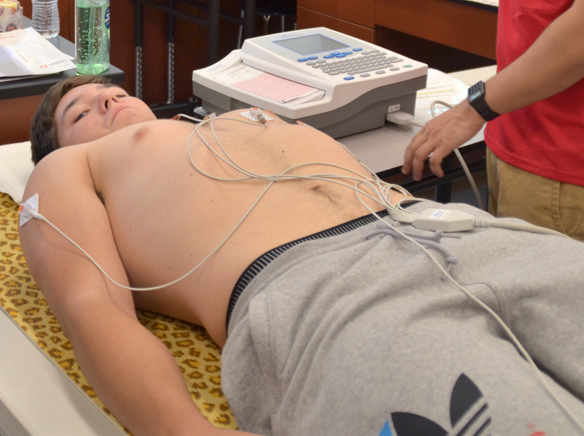Provided by MGS
The heart has been characterized as the engine that makes the human body run. If that metaphor is not exactly spot-on, it still serves as a good indicator as to just how vital a healthy heart is to the human body.
Despite the importance of a healthy heart, diseases that affect the heart remain the single greatest cause of death across the globe. According to the World Health Organization, cardiovascular diseases (CVDs) are the leading cause of death globally, claiming roughly 18 million lives each year. Various factors can adversely affect how well the heart functions, and that includes irregular heart beat, also known as arrhythmia.
Atrial fibrillation (AFib) is the most common form of arrhythmia, and it behooves anyone to gain a greater understanding of this condition.
The Cleveland Clinic notes that AFib is an arrhythmia that begins in the upper chambers of the heart known as the atria. When a person has AFib, these chambers beat irregularly, and the American Heart Association reports that, when this occurs, blood pools in the area because not enough blood is being pumped out of the atria. That pooled blood can clot and pose a serious threat.
The AHA notes that, if a clot forms, the blood can be pumped out of the heart to the brain, which blocks the blood supply to the brain and ultimately results in stroke.
In fact, AHA data indicates between 15 and 20 percent of people who have strokes have AFib. In addition, the Heart and Stroke Foundation of Canada reports that one-fourth of all strokes affecting people 40 and older are caused by AFib.
Does AFib produce symptoms?
The Cleveland Clinic notes that some people with AFib experience no symptoms. Such is the case in people whose ventricles are beating at a normal or slightly elevated pace. When ventricles begin to beat faster, then individuals may experience symptoms that can include:
• Extreme fatigue
• Irregular heartbeat
• Heart palpitations
• Feeling of butterflies or fish flopping in the chest
• Dizziness or lightheadedness
• Fainting
• Shortness of breath
• Chest pain
Researchers behind a 2021 study published in the journal Progress in Cardiovascular Diseases note that AFib has sometimes been characterized as the cardiovascular epidemic of the twenty-first century. Such a characterization underscores how significant a global health threat AFib can be.
More information about AFib can be found at heart.org.














